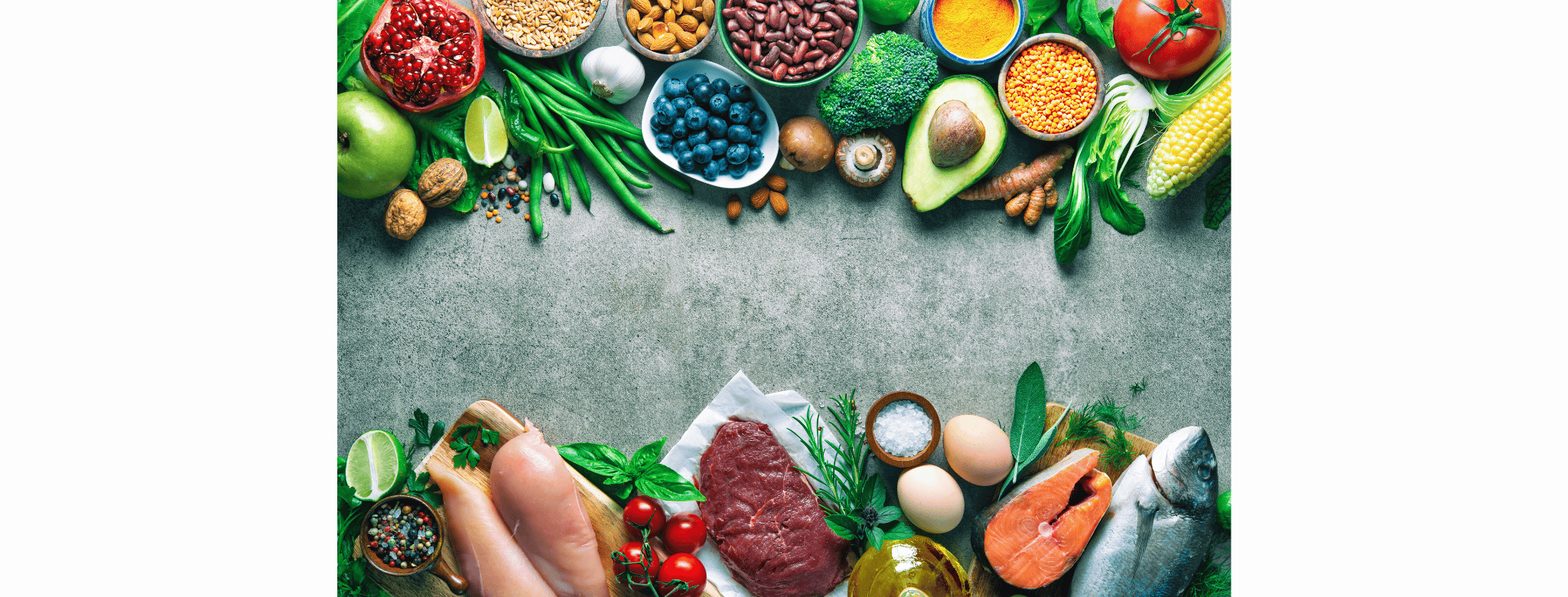Diet Myths and Truths- Debunking Common Nutrition Industry Myths

By Ashley Sponsky, MS, RD, LDN
As a registered dietitian, I meet regularly with many females who have discussed being on a diet in the past, or are currently trying to follow one. In fact, many girls start thinking about the need to diet as early as 8-12 years old, which can play a drastic role in how we form relationships with food and exercise later in life.
There are endless amounts of fad diets and false wellness information on the web and social media, and one diet is not necessarily any more successful than the next. There is not one cookie cutter diet or advice that works for everyone. This can vary depending on things like health history, medications, supplements, genetics, activity level, and food intolerances and allergies. Although they may sound enticing, fad diets are not designed for permanent weight loss. They are usually based on current or trendy diet myths, which is advice that becomes popular without facts and research to back it up.
Let’s review together some common nutrition myths I hear often, and we can set the record straight!
1. Myth: High protein, low carbohydrate diets are the best way to lose weight
Truth: There are benefits from eating ALL macros, which include protein, carbohydrates and fats.
Overconsuming calories from any of these macronutrients can lead to weight gain, carbohydrates are not the only culprit. A low carbohydrate diet will deplete your body of glycogen stores and water weight initially, but what happens once you resume eating carbs again? It would be extremely difficult to avoid carbs for the rest of your life.
Instead, pay attention to your body- when do you feel your best? What quantity is too much? What foods make you feel less energized?
2. Myth: Fruit has too much sugar and is considered “bad” to eat
Truth: Fruit contains fructose- a naturally occurring, unprocessed sugar. (High fructose corn syrup is not the same thing).
Fruit is more than just sugar- it has fiber, vitamins, minerals, fluid, and antioxidants! It is considered a great fuel for pre and post workout- think bananas and oranges!
It is recommended to consume whole fruit versus fruit juices to reap all of the nutritional benefits, and to consider combining fruit with a healthy protein and/or fat to slow down the absorption of carbohydrates (example: apple with nut butter).
pay attention to your body- when do you feel your best? What quantity is too much? What foods make you feel less energized?
Ashley Sponsky, MS, RD, LDN

3. Foods like grapefruit, celery, or cabbage soup can burn fat and make you lose weight.
Truth: There are NO foods or supplements that can instantly melt away fat.
If this were the case, wouldn’t we all be consuming these specific foods and seeing results? Some foods with caffeine and EGCG (a polyphenol and antioxidant) do have cardiovascular and metabolic benefits and can burn approximately 30-50 extra calories per day. Otherwise, it is recommended to focus on whole, unprocessed, fiber rich foods when possible.
“Cleaning up” the diet by removing processed foods and chemicals is the best way to cleanse the body, reduce inflammation, reduce extraneous calories, and allow weight loss to occur.
4. Myth: Low fat or fat free means there are no calories in the product
Truth: Low fat or fat free foods are often lower in calories than the full-fat version of the product, however, this does not equate to a calorie free to healthier product.
Low fat products often contain added sugars, flours, or thickeners to improve the flavor and texture after the fat is removed (example: nut butters, yogurt). Your body needs healthy fats to provide energy, rebuild cells, produce hormones, provide satiety, and benefit your heart health. In the end, you may continue to feel hungry after eating these products.
It is recommended to continue to consume whole food based fat products in moderation, such as olives, oils, nuts, and avocados.
5. Myth: Eating after 8pm causes weight gain.
Truth: Having a healthy snack at night does not equate to weight gain- if you are hungry, you need to fuel your body!
The time of day you consume meals and snacks is not as important as the quality of your food, the portion size of your foods, and the amount of activity in your day. There are a few things to consider before making nighttime snacking part of your routine: mindless munching, emotional eating, boredom eating, and cravings are common during this time of the day. Therefore, food choices at night can be more processed, calorie dense, sweeter or saltier than foods consumed earlier in the day.
Choosing more fresh, unprocessed snacks at night would be the best options for weight management goals.
Remember- a specific diet won’t last unless you change your eating and exercise behaviors in a way that meshes with your food preferences, schedule, and lifestyle.
There is no secret ingredient, rule, or “magic pill” for weight loss- or else we would all be doing it! Making a long term lifestyle change requires consistency, balance, and mindfulness, and is the true key to success!
About the author. Ashley Sponsky is a registered dietitian, certified personal trainer and certified lifestyle coach. She is the owner of Fueled and Fit LLC, a private practice in Cary, NC. Ashley has been a registered dietitian since 2010 and has worked with a variety of clients in outpatient, gym, and corporate wellness settings.
Spread the word
Medical Disclaimer: All content found on the HER Health Collective Website was created for informational purposes only and are the opinions of the HER Health Collective experts and professional contributors. The Content is not intended to be a substitute for professional medical advice, diagnosis, or treatment. Always seek the advice of your physician or other qualified health providers with any questions you may have regarding a medical condition. Never disregard professional medical advice or delay in seeking it because of something you have read on this Website. If you think you may have a medical emergency, call your doctor, go to the emergency department, or call 911 immediately.
